Becoming a banker requires substantial education and experience. You will need to have a resume that demonstrates your qualifications for the job, as well as an understanding of financial terminology. A well-written resume will be your first step toward becoming a successful banker. You’ll need to demonstrate that you have the ideal combination of experience, education, and character required for this position. Having the right keywords and statistics on your resume will help you get through the initial screening process with flying colors. A banker advises clients on investing their money and assists them in managing their finances by advising them on banking services and products, investments, mortgages, or other financing needs. We understand writing about yourself in the third person can be challenging. That’s why we’ve created this useful.
Banker Resume Example

Download This Banker Resume as PDF
Commercial banker Resume Example
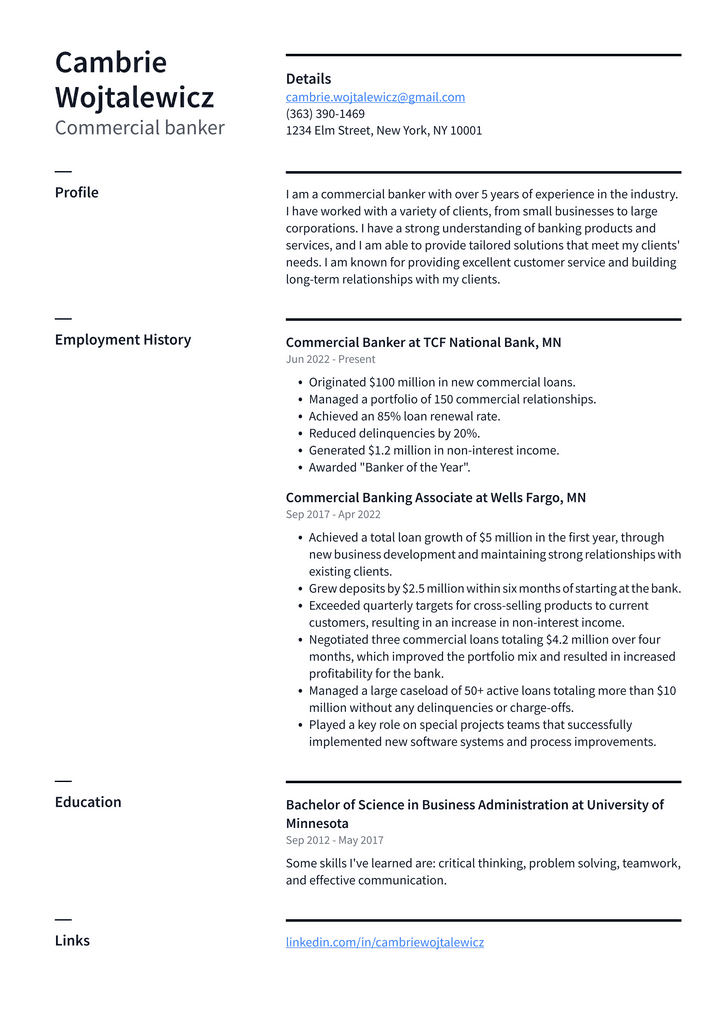
Download This Commercial banker Resume as PDF
Private banker Resume Example
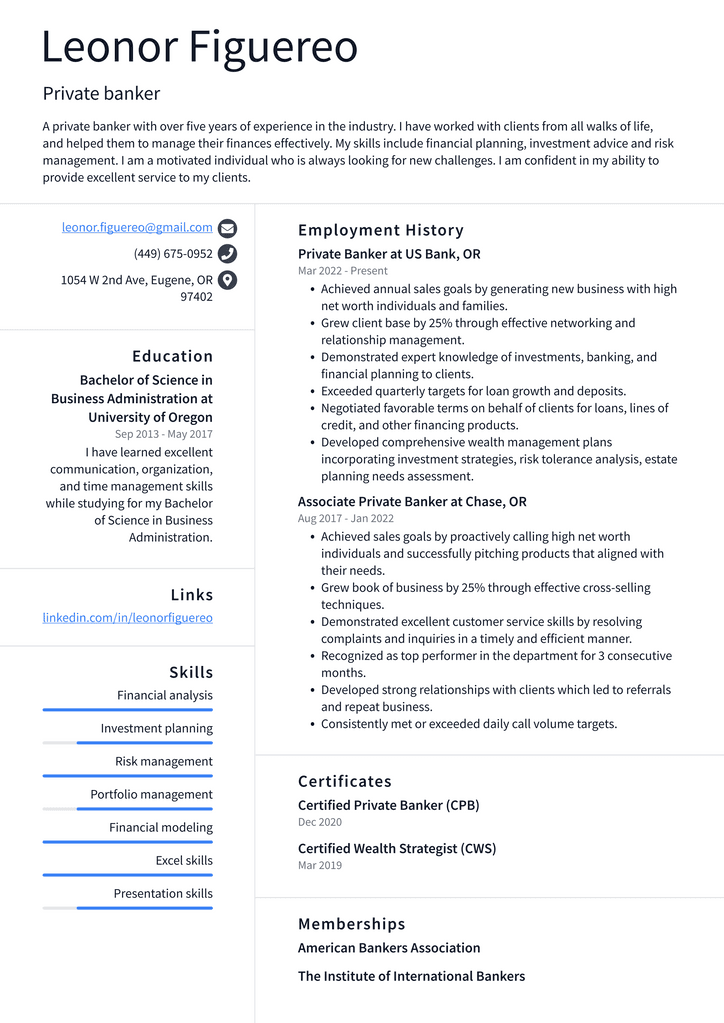
Download This Private banker Resume as PDF
Investment banker Resume Example
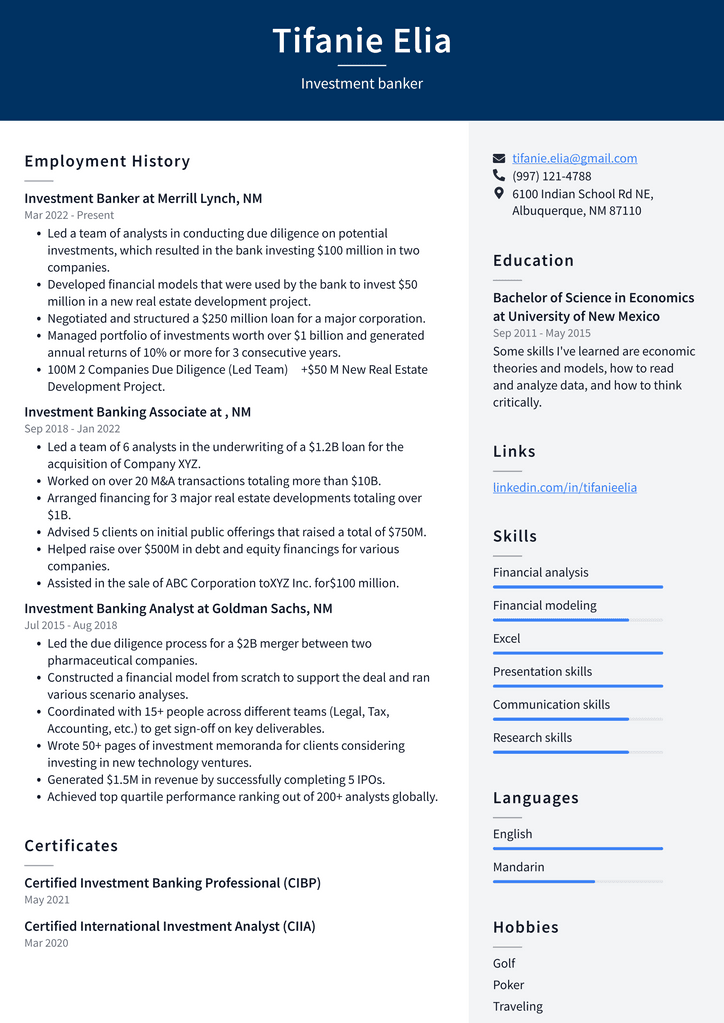
Download This Investment banker Resume as PDF
Retail banker Resume Example
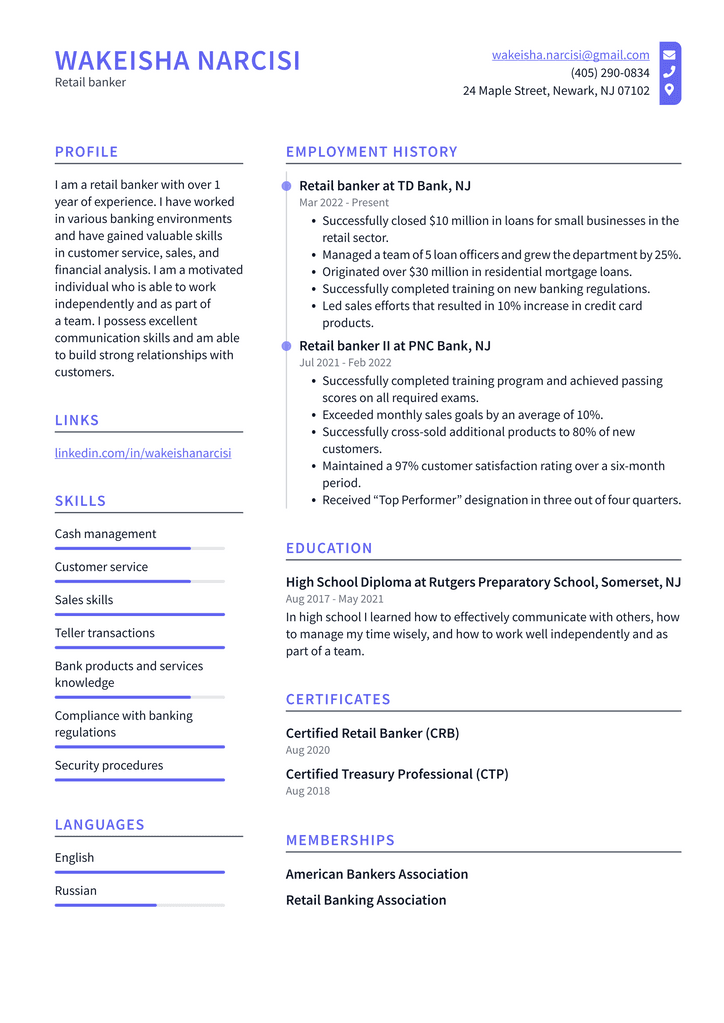
Download This Retail banker Resume as PDF
Corporate banker Resume Example
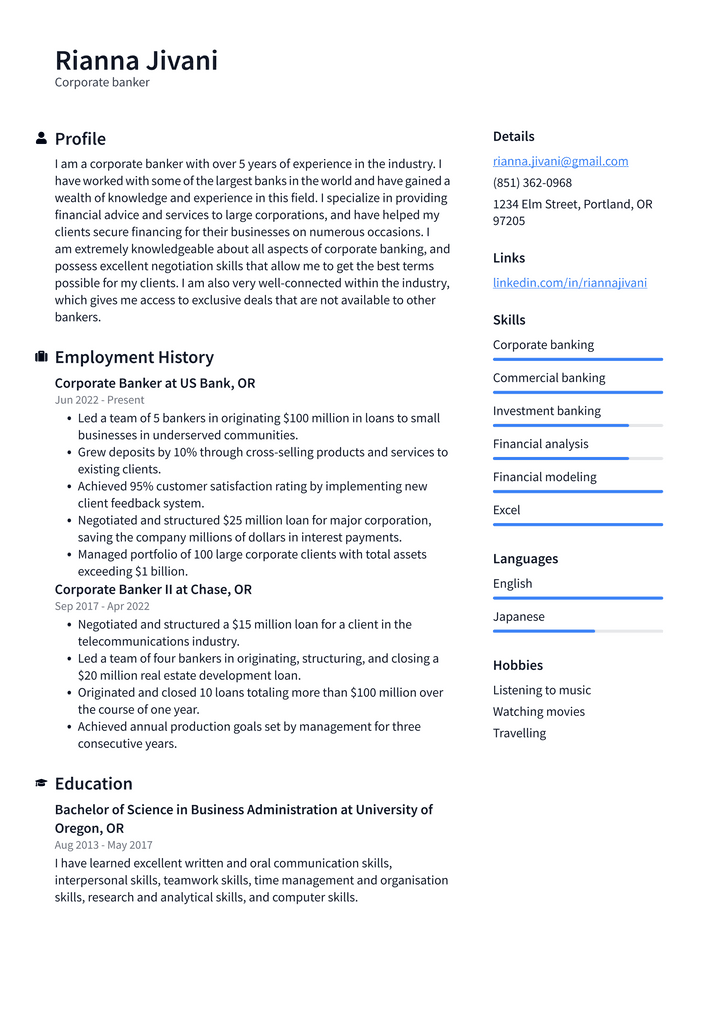
Download This Corporate banker Resume as PDF
Relationship manager Resume Example
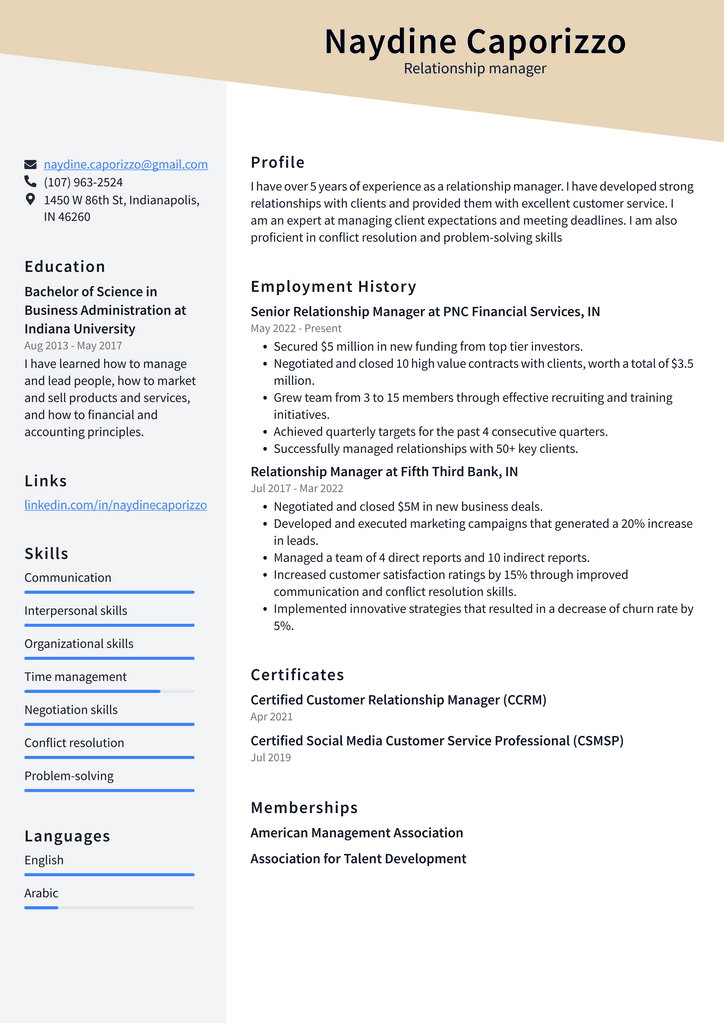
Download This Relationship manager Resume as PDF
Create a strong resume with the proper formatting
To ensure your resume gets the attention it deserves, you will have to ensure that it is formatted correctly. Your resume should be formatted to highlight your skills and experience in an easy-to-read layout. Make sure your resume has: – A header with your name, contact information, and education – e.g., Bachelor of Science in Business Administration – Johns Hopkins University – A career objective or summary section – e.g., Accountant and banking professional with ten years of experience seek a challenging and rewarding position in the finance industry. – Sections for Education, Skills, Experience, and Additional Skills.
List your education first
The first item on your resume should be your education. Then, you should first list your most recent degree or certification, followed by your earlier degrees. Some employers prioritize recent experience, so if this is what you’re emphasizing, list your most recent job first.
Mention any certifications or licenses you have
If you have a certification that demonstrates specialized knowledge, it should be listed as part of your experience. If you have a professional license, such as a real estate license, list it in the appropriate section.
Sum up relevant work experience
Here, you will describe your work experience. Begin with your most recent job. If you have held multiple positions, list the job(s) that relate most closely to the post you are applying for (e.g., if you were a financial advisor and now work in a bank, list the financial advisor experience instead of the bank experience). Each position should be accompanied by a brief description of what you were responsible for.
Add your most recent job as a new bullet point
Now is the time to emphasize why you’re a good fit for the position. Talk about how your previous experience will help you excel in this position. Highlight how your previous jobs relate to the job for which you are applying. You should also provide statistics such as percentages or numbers to demonstrate your success.
Now is the time to emphasize why you’re a good fit for the position
This is where you talk about how your previous experience will help you excel in this position. Highlight how your previous jobs relate to the job for which you are applying. You should also provide statistics such as percentages or numbers to demonstrate your success.
Conclusion
If your resume passes the screening stage, the next step is an interview. At this point, you will have the chance to tell a hiring manager more about your expertise, goals, and reasons for applying. Make sure you’re fully prepared with questions to ask the hiring manager.